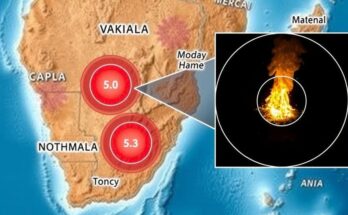Ethiopia has yet to respond to Djibouti’s proposal for a jointly managed port to ease tensions with Somalia. Djibouti’s Foreign Affairs Minister, Mohamoud Ali Youssouf, reaffirmed the offer, which focuses on providing Ethiopia with access to maritime routes for economic cooperation while addressing concerns about military presence in Somalia. There have been stalled diplomatic efforts, particularly involving Turkey, to mediate the situation.
Ethiopia has not responded to Djibouti’s recent proposal aimed at alleviating heightened tensions with Somalia, which had previously received backing from various international bodies. As per comments made by Mohamoud Ali Youssouf, the Foreign Affairs Minister of Djibouti, during an interview, Djibouti is poised to facilitate a solution regarding Ethiopia’s access to maritime routes and is willing to provide a port that would be operated jointly by Djibouti and Ethiopia. The offer pertains to Tojarah port located in northern Djibouti, a strategic alternative for Ethiopia, which is landlocked and depends on adjacent nations for commercial access. Youssouf expressed that the proposal remains available, emphasizing Djibouti’s goal of mitigating discord between Ethiopia and Somalia through this port arrangement that would enhance the economic prospects of both nations. Nonetheless, Somalia has firmly stated its resistance to the establishment of any military facilities on its territory while showing openness towards a commercial agreement concerning the port. Ethiopia, in pursuit of sea access, has recognized Somaliland, a self-declared independent region of Somalia, in exchange for controlling a segment of the Red Sea coastline. Despite ongoing diplomatic efforts, such as initiatives led by Turkey to mediate discussions between Ethiopia and Somalia, progress remains elusive. A planned meeting last month was abandoned after Somalia insisted that Ethiopia relinquish its accord with Somaliland prior to any negotiations taking place.
The geopolitical landscape involving Ethiopia, Djibouti, and Somalia has been intricately tied to issues of maritime access, particularly as Ethiopia is landlocked and seeks alternative trade routes. Djibouti’s proposal offers a potential diplomatic resolution and an opportunity for mutually beneficial economic cooperation, while past agreements and tensions complicate the path forward. Natural resources, maritime routes, and national sovereignty are critical factors at play in this dynamic.
In summary, Djibouti’s proposal to provide a port to Ethiopia in order to alleviate tensions with Somalia remains unaddressed by Ethiopia, despite potential benefits for both nations’ economies. The ongoing complexities regarding territorial sovereignty and military presence continue to hinder progress, highlighting the intricate nature of regional relations. Diplomatic efforts, particularly by Turkey, illustrate the challenging landscape of negotiation and mediation in this matter, with an enduring emphasis on both commercial potential and national security.
Original Source: www.garoweonline.com



